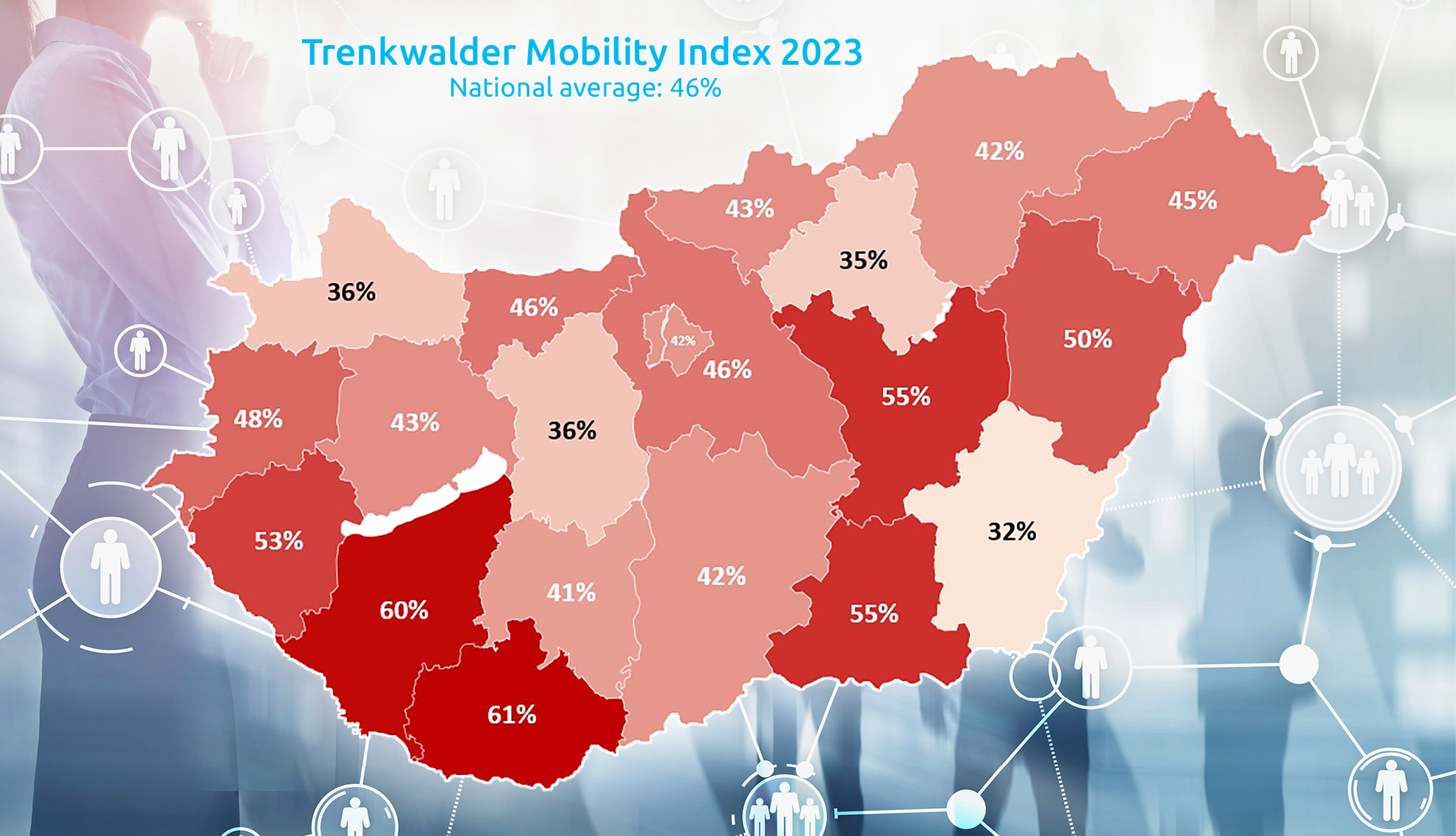Employees Focusing More on Work-Life Balance in 2024

In the last quarter of 2023, inflation in Hungary was shrinking steadily, and economic sentiment started to take off. As measured by the economic research institute GKI, the index showed modest growth in November, then started registering recent records: December saw a nine-month high, and January returned the best data in 18 months.
As in most cases, the report contained good news and bad. Until December, both business and household expectations had improved, but one month later, the business side became pessimistic, albeit “within the statistical margin of error.”
In the first month of this year, only industry saw a noticeable negative change (a two-point drop), while in the other three sectors, the outlook for companies was virtually unchanged compared to December, GKI said.
As for employment outlooks, these became “more cautious” in the construction sector, while the service sector remained unchanged compared to December. Consumer confidence is nothing short of booming, reaching a near-two-year high in January.
“Households assessed both their financial situation in the last 12 months and their financial prospects for the next 12 months as strongly improving,” GKI indicates.
Overall, expectations about the prospects of the Hungarian economy improved a lot in January, reaching an almost two-year high. However, pessimists still outnumber optimists by a large margin, according to GKI.
Brighter Picture
Another survey from staffing company Manpower shows a somewhat brighter picture: about 31% of Hungarian companies plan to hire in Q1 2024, while 21% intend to reduce their headcount, according to 525 employer respondents.
A similar trend was measured in the Randstad HR Trends 2024 report. This year, 30% of companies plan to increase headcount, 17% will not add people or replace those who leave, and a majority of 46% plan to maintain existing levels. For those looking to hire, the main reasons given are market and company growth, as well as the need for new skills in the organization.
The Randstad report also looked into the expected business challenges in 2024. These were mainly related to inflation and wages, while, for instance, high energy costs were ranked only sixth. The need for specialized skills remains in focus, with the most sought-after being IT/technology, engineering, accounting/finance, production, back office/administrative support, sales, operations, logistics, and customer service.
But for employers, the lack of specific skills in the labor market is not the main obstacle in hiring. Other factors include:
• unrealistic salary expectations: 88%
• no or limited industry working experience: 55%
• inadequate language skills: 37%
• work life balance expectations: 31%
• lack of required years of working experience: 28%
• lack of relevant qualifications: 26%
As for reasons for existing staff to leave, most of these are also related to salaries and work-life balance:
• a better offer from elsewhere: 86%
• more opportunities elsewhere for career improvement: 49%
• looking to pursue a different career path: 28%
• workload too heavy: 26%
• desiring a more flexible work schedule: 25%
• no work-life balance: 21%
Lacking Mobility
One aspect not reflected in the Randstad HR Trends report is an openness to relocate or, put another way, labor force mobility. Staffing and HR firm Trenkwalder has done its own work to reveal the trends in this area. Its finding is that 46% of current employees are willing to relocate from their current location, and not only within Hungary but also abroad.
While this percentage seems high, it is worth noting that it is lower than last year, when it stood at 53%. Interestingly, it is not the least developed Hungarian counties that lead the openness to mobility, but those in the southwestern region, Baranya and Somogy. Most respondents, 89%, gave as a reason better living conditions and a more stable future (53%), but also more job opportunities (43%). Almost one-third, 31% of employees, plan to relocate within two years from now.
Regarding the available jobs, the respondents were not too optimistic. A little more than half, 51% to be precise, consider there are not enough job opportunities in their area, a significant rise compared to the 34% one year before.
Regarding the specific wage levels, regional differences remained “significant” in Q3 2023, the Central Statistical Office (KSH) said in a review of labor market data. The average wage in Budapest stood at a gross of HUF 677,000 per month, 68% higher than that in Szabolcs-Szatmár-Bereg County. Here, wages were the lowest in Hungary, at HUF 402,000 per month on average.
Compared to the second-ranked Győr-Moson-Sopron County, home to Audi, among other employers, where the average salary was HUF 589,000 per month, employees in Budapest earned 15% more. The average wage in the capital city was 21% over the national average in the third quarter.
Top Employers in Hungary
Labor force portal munkahelyeink.hu [Workplaces] compiled the list of the best employers based on the opinions of former and current employees. The participants voted not only on the salary level but also on work-life balance and company culture and values. The list is as follows:
1. Yettel Hungary
2. Pepco Hungary
3. Harman Hungary
4. Metro Hungary
5. Coca-Cola HBC Hungary
6. Penny
7. DM Hungary
8. Jysk Hungary
9. Erste Bank
10. Audi Hungaria
This article was first published in the Budapest Business Journal print issue of January 26, 2024.
SUPPORT THE BUDAPEST BUSINESS JOURNAL
Producing journalism that is worthy of the name is a costly business. For 27 years, the publishers, editors and reporters of the Budapest Business Journal have striven to bring you business news that works, information that you can trust, that is factual, accurate and presented without fear or favor.
Newspaper organizations across the globe have struggled to find a business model that allows them to continue to excel, without compromising their ability to perform. Most recently, some have experimented with the idea of involving their most important stakeholders, their readers.
We would like to offer that same opportunity to our readers. We would like to invite you to help us deliver the quality business journalism you require. Hit our Support the BBJ button and you can choose the how much and how often you send us your contributions.










